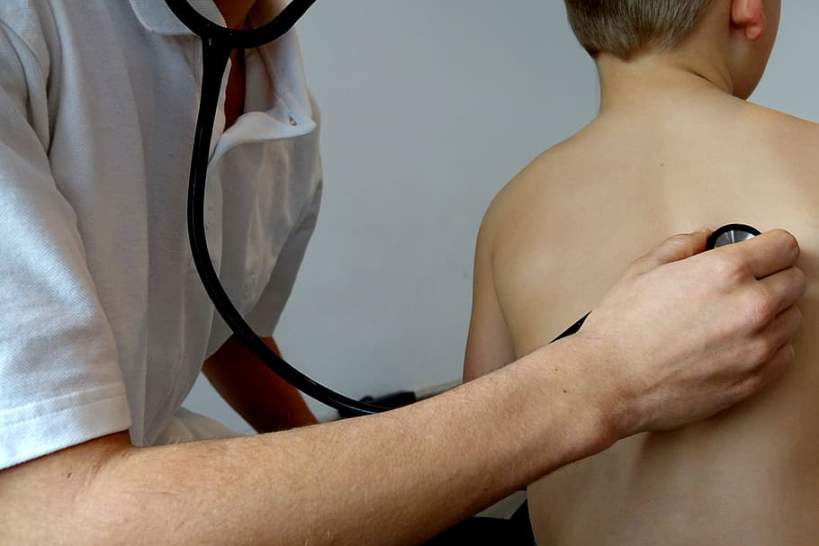Mucus in children usually occurs in the rainy season and some other days of the year. This mucus is not harmful but can prevent young children from breathing, eating and sleeping properly.
Mucus in children is very common in babies and children up to 5 years old. Mucus is a defense mechanism of the body against infections. When a virus comes in contact with and inflames the airways, the answer is to produce that gelatinous material. In turn, it traps germs to be expelled outside.
It is important that parents are well informed about this condition and its treatments. This way, they will know what to do if the child loses his appetite, becomes fatigued and feels like he is choking. Although mucus is not a serious problem in itself, it could be a sign of a more complex disease.
What are the types of mucus in children?
Among the types of mucus in children are:
- Clear and abundant mucus. It goes up and down the throat and some children swallow it. It is a sign of a cold and is accompanied by constant sneezing. It can last between 2 and 4 days.
- Thick and abundant. When the cold is not removed, the throat begins to struggle with it and makes the mucus go down thicker. Although there is not much mucus left in the child’s nose, when he lies down it causes him to start coughing frequently.
- Greenish yellow. This color is the indicator that the white blood cells have started to fight the infection.
- Greenish. It is thick and commonly appears in the morning. It also usually appears in the eyes and is a sign that the blood cells are fighting the infection.
- Mucus with a persistent cough and a choking sensation. If your child is having trouble breathing at night and coughs a lot, it could mean he has bronchitis.
- Thick with fever. This could be a sign that they have a more serious infection, such as otitis or pneumonia.
Should mucus be treated in children?
Most pediatricians do not prescribe medications for children under the age of 2 to combat mucus. It is considered that it is better to treat them with simple mechanisms to expel them.
However, it can be treated with medications if these are abundant, do not allow the child to breathe well or if they have a fever higher than 38ºC.
Mucus is a body defense mechanism against infections. When a virus comes into contact and inflames the airways, the answer is to produce that gelatinous material.
What methods can be used to treat mucus from children?
There are various treatments that can be used to remove mucus from children.
- Hydrate it well. Providing plenty of water will make the mucus more liquid and flush it out through coughing.
- Ventilated environment. The room should be well ventilated and well maintained to prevent fungus growth.
- Nasal forceps. It is used to remove dry mucus in babies.
- Nasal washes. It should be done by placing the baby lying with the head to one side, to apply serum with a syringe in each nostril. This serum can be physiological, hypertonic or sea water.
Apart from these, you can also be given home remedies, such as:
- Infusion of mallow with lemon juice and honey.
- Carrot juice with orange every morning, for its high power of vitamins A and C.
- Chicken broth, to deflate the airways, by the cysteine compound.
Most pediatricians do not prescribe medications for children under the age of 2 to combat snot.
In case of fever, the pediatrician may prescribe other medications, such as:
- Antibiotics.
- Mucolytics.
- Nebulizations.
- Antihistamines.
When is it necessary to take the child to the pediatrician?
If the little one has any of the following symptoms, do not hesitate to take him to the doctor:
- Very persistent cough that causes him to drown. If this happens, they could have bronchitis.
- If they have general malaise and fever, this may be a sign of otitis or pneumonia.
In conclusion, mucus in children is very frequent and is not always harmful, as it is a defense mechanism against infections.
However, if you notice that your child has a lot of mucus, coughs nonstop and his sleep is interrupted, take the necessary preventive measures. If you see other symptoms as well, take him to your pediatrician immediately.
